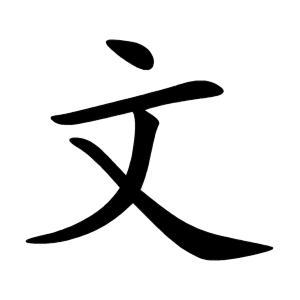
Bianca is a feminine given name. It means "white" and is an Italian cognate of Blanche.
Mitsuki is the Japanese word for "three months" (三月). It is also a Japanese given name natively written in a variety of forms. While a unisex name, it is more commonly used by women.

Wen is the pinyin romanisation of the Chinese surname 文 (Wén).
Aylin is a Turkish female given name. It is sometimes used as a given name in the English-speaking world in modern times. The name Aylin also carries the meaning of; “Moon Halo" or, "The one that belongs to the moon”. Other related names are Ailin, Ayla, Tülin Aileen, Eileen, Ayleen.
Ajla is a feminine given name in various areas around the Eastern Mediterranean. In Arabic it means the “brightest”, “most dazzling”, “most brilliant”, smart. In Turkish it means ’’moonlight’’’ or “halo”, and in Bosnia and Herzegovina the name means "The one who shines in moonlight". The given name is also used elsewhere in the former Yugoslavia such as Croatia.
Halah is an Arabic female given name meaning "the aura of light around the moon". It is a cognate of the Hebrew name Hila.
Aybike is a common Turkish given name. The name is produced by using two Turkish words: Ay and Bike. In Turkish, "Ay" means "Moon" and "Bike" means "Princess" and/or "Woman". Therefore, it means "a (princess) woman as beautiful as the moon" or "a (princess) woman who has a face as beautiful as the moon"
Tülin is a common feminine Turkish given name. In Turkish, "Tülin" means "Halo around the moon". "Tülin", "Aylin", and "Ayla" are synonymous given names. Beside that meaning, "Tülin" also means "Mirror", according to TDK.
Ayça is a common feminine Turkish given name. "Ayça" derives from "Ay". In Turkish, "Ay" means "Moon" and "Ayça" means the "Crescent".

Selene is a female given name taken from Selene in Greek mythology. Selene was an archaic lunar deity and the daughter of the Titans Hyperion and Theia. Her equivalent in ancient Roman religion and myth is Luna, Latin for "moon."
Saher is either a feminine given name of Arabic origin, common throughout the Persian-speaking and Muslim worlds, or unisex given name of Hebrew origin, used mainly in Israel. Though the Arabic and Hebrew names are phonologically identical and both derive from Semitic languages, they are nonetheless etymologically unrelated. In Arabic, the name means "just before dawn", coming from a common Semitic root meaning "dawn". The origin of the Hebrew name is an ancient Akkadian word for the crescent moon.
Eun-jin also spelled Un-jin, is a Korean feminine given name. The meaning differs based on the hanja used to write each syllable of the name. There are 30 hanja with the reading "eun" and 57 hanja with the reading "jin" on the South Korean government's official list of hanja which may be used in given names.
Hyun-jin, also spelled Hyeon-jin or Hyon-jin, is a Korean unisex given name. Its meaning depends on the hanja used to write each syllable of the name. There are 35 hanja with the reading "hyun" and 43 hanja with the reading "jin" on the South Korean government's official list of hanja which may be registered for use in given names.

Selena is a feminine given name, a probable variant of Selene, the goddess and personification of the Moon in Greek mythology and religion.
Na or Ra is a relatively uncommon Korean family name. The name is written as 나 (Na) in South Korea, and as 라 (Ra) in North Korea. As of 2015, an estimated 160,946 people had the surname Na or Ra.
Runa is a feminine given name with multiple origins from different, unrelated cultures.
This page is based on this
Wikipedia article Text is available under the
CC BY-SA 4.0 license; additional terms may apply.
Images, videos and audio are available under their respective licenses.



